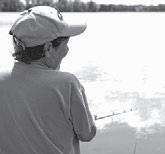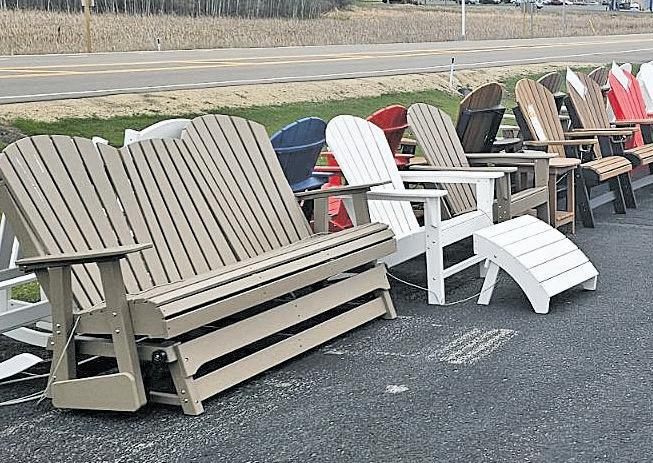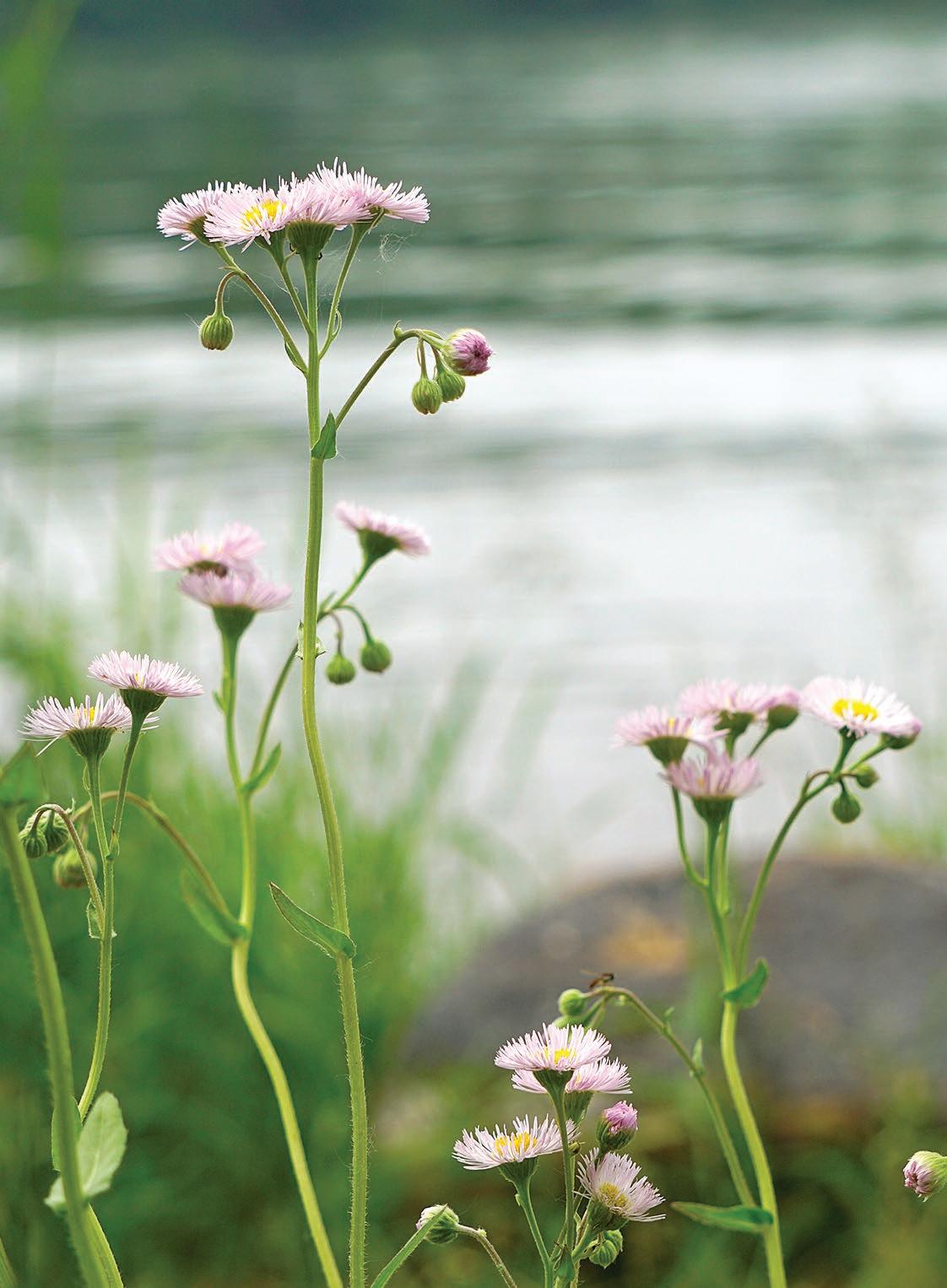L KER
Vol. 2025 • No. 3 • June 20 – July 10, 2025


Vol. 2025 • No. 3 • June 20 – July 10, 2025

Also Featured
Disc Golf, Bluegills, Turtles, Recipes, Dairy Ferry, Bow Fishing, Clear Lake Heritage Days, Balsam Lake Freedom Fest, Milltown Fishermans Party

Flotsam & Jetsam | Page 3A
Crew Members | Page 6A DISC


Riggins | Page 3B
Ropes | Page 3C
Shore Leave | Page 12A
FISHERMEN'S PARTY
Fishers of Men | Page 14A
Port of Call | Page 6B & 6C
BALSAM & BONE

Shore Leave | Page 10B HERITAGE DAYS
Fishery | Page 11B BLUEGILL
Shore Leave | Page 9C

By Justin Runberg editor@theameryfreepress.com
In late May through late June, you may see some turtles looking to increase their numbers. This is the time of year when most turtle species in Wisconsin begin laying their eggs to help keep the species thriving. During this period, many end up getting hit by cars due to the numerous water bodies near roadways


throughout the county. The Wisconsin DNR has some tips for those who will be traveling to the area. Wisconsin is home to many species of both unique and uncommon turtles. However, in most cases, only about one in every 200 turtles hatched will survive to adulthood. One way to help these curious creatures is to protect their nests from predators. People can do this by creating a nest cage, which keeps predators out and gives baby turtles the best chance of survival.
On the Wisconsin DNR website, there is a link for you to report your turtle sightings. This provides the state with valuable information to help increase the population and identify some of the problem areas. Finally, drive cautiously. During this time, many turtles will start to cross the road. Not only can being hit by a vehicle be fatal for turtles in most cases, but it can





also damage or puncture the tires of the vehicle you are driving.
Turtles are essential to a healthy ecosystem in many cases, helping to keep it thriving. The snapping turtle serves as a prime example of this, as they act as the garbage cleaners of the waters they inhabit. They often consume carrion, cleaning up rivers and water bodies by removing deceased fish. There are a total of 11 different species found throughout the state. Below are some uncommon species of turtles that people may not have heard of or seen before.
Midland Smooth
Softshell Turtle
If you have ever laid your eyes on a Midland Smooth Softshell Turtle, it may appear different from other turtle species due to its unique appearance. Softshell turtles have a long, pointed snout compared to the strong jaws of other turtles, like the snapping turtle. Furthermore, their shells, or carapaces, are distinctive because they feel leathery and smooth to the touch, much like their namesake. They also possess heavily webbed feet that
facilitate better movement in their aquatic environments. Adult females are slightly larger than their male counterparts, growing to just over a foot long in their shells, while males typically reach about seven inches. It is uncommon to see this species in Polk County because its range covers much of the lower Mississippi River. This range starts at Pierce and Pepin counties and extends all the way to the southernmost county, Grant.
This species is a special concern due to habitat loss. They are generally active from early spring to mid-fall. When autumn arrives, they burrow into the sandy substrate of flowing water to avoid freezing. This area also serves as their preferred habitat. It is an exclusively large river species that thrives in clean water with sandy bottoms. Females lay eggs near running water and usually produce one clutch






turtle species in the world, growing to a mere three to five inches. There’s a reason this species is called the musk turtle; it is also known as the stinkpot due to the foul odor released when the tiny creature is seized.
Another unique ability of this small turtle is its range of motion, which is much greater than that of other turtles due to its smaller plastron. A plastron is the underside shell of the turtle. This adaptation aids them in their preferred habitats. Unlike the first turtle, this species resides in lakes and backwaters, occasionally venturing into rivers. They prefer areas with dense aquatic vegetation, where they use their range of motion to climb up and sunbathe. Females do this more often in the spring to accelerate egg development. Although this increased mobility helps the turtle thrive, it also exposes them to greater risk from predators due to reduced protection.
Often, the main reason these little guys are hard to see is that they spend most of their time on the bottom of the lakes they inhabit, where they get their sustenance by foraging for snails, fingernail clams, and aquatic insects.
The Ornate Box Turtle truly lives up to its name with its vibrant coloring displayed across the shell. It is also the only turtle on this list that is classified as an endangered species. This small species

typically grows to just under five inches in length. It has a domed shell adorned with bright yellow markings. The species received its name due to its unique plastron, which is the underside of the shell.
Unlike the musk turtle, this part of the Ornate Box Turtle fully develops but is hinged. This allows the turtle to retreat into

its shell when threatened, with the front and back sections closing tightly against the underside of the top part of the shell.
Unlike the other turtles on the list, the Ornate Box Turtle prefers and primarily inhabits dry prairies and oak savannahs with deep sandy soils. This is Wisconsin’s only terrestrial
turtle, meaning it is entirely land-dwelling. As a result, they also lay their eggs in these habitats. After laying the eggs, the female leaves them to fend for themselves both before and after hatching. Unlike other turtles that might escape predators by entering water, the Ornate Box Turtle does not go into the water, making
the young easily accessible to predators waiting for their next meal.
When winter arrives, they also hibernate. Part of the reason they prefer sandy soil is that they burrow down for the winter. They go deep enough to avoid freezing, allowing them to safely emerge and lay new clutches the following spring. ■



















By Justin Runberg editor@theameryfreepress.com


























Disc golf is much like regular golf; however, instead of hitting a ball, you throw a frisbee. The Amery area has a professional disc golfer, Chris Tourville, who will be competing in the Majestic Championships in the next couple of weeks. After this tournament, Tourville will also compete in the Masters World Championship, where some of the best disc golfers in the world come to showcase their skills.

American Worlds three years prior to this, and then I did earn a spot last year at the Masters World as well.”

“What I accomplished last year is actually what got me invited to this year's world event,” said Tourville. “So every year, the season before you're working towards trying to earn a spot in worlds. And I've earned a spot in
Disc Golf is a game where players use different discs to throw down a fairway toward a hole. The discs vary in flight based on their design and the throwing technique. Typically, a set includes a driver, a mid-range disc, and a putter. When you reach a hole, you throw your putter at a chain link pole topped with a basket designed to catch it. In the Amery area, there are approximately five courses within a 30-mile radius.





Tourville started the sport back in 2016 thanks to a cousin of an ex. Trevor Sandmann moved in with them and










































































































began playing Disc Golf. Over the course of a year, he tried to convince Tourville to come out and play a round. Slowly but surely, as more discs came through the door, he wanted Tourville to play more. Finally, Tourville gave in and went for a round.
When they first went out, Sandmann gave Tourville a set of three discs to play with. It was a typical setup of everything one might need to get started. At the end of the round, Tourville went to return his discs, only to be told they were now his. The disc golf bug latched on, and a few days later, Tourville found himself on another course. He initially started playing at the course in Balsam Lake before branching out as he progressed. By the spring of 2018, after becoming more and more into the game, it was all he could think about all winter.
“By that summer, I was throwing pretty much any time I could. Then, in the fall, I got really excited about it and started getting better in 2018. I tried to get my friends to sign up for a PDGA membership, which is Professional Disc Golf Association,” said Tourville. “When you do that, you get a PDGA number that's attached to you for life. And then that's when you start getting a rating, and you can start kind of figuring out where you fall in your community and across the country.”
Tourville grew tired of waiting for his friends to sign up, so he decided to enter a tournament himself. In his first tournament, he placed fifth out of ten players. He then went on to his next tournament in the winter, competing in five-degree weather. Although his buddy won the tournament, Tourville’s passion for the sport truly ignited. He caught the tournament bug and never looked back. To date, he has participated in 64 professional disc golf tournaments. Not only has his love

for the game led him to tournaments, but he also helps manage a course in southeast St. Paul called Kaposia.
Tourville can hardly believe where the sport has taken him but comments on how different Disc Golf is compared to other sports or even regular golf. It is the only sport he has played where an individual competitor is cheered for and congratulated by other competitors on the course. There is a level of camaraderie not found in other sports.
“It's pretty crazy. There's a lot of high fives, knuckle bumps, hugs and cheering that go on for other people's
Name
graduate and currently living in the area, he wants to help the sport grow. For anyone looking to get into the game, he advises stopping by Kaposia, where he will assist with technique and ensure you have the right discs to succeed. He also recommends trying out easier, shorter courses to familiarize yourself with your discs and hone your skills. The app UDisc is also useful for finding courses in the area and seeing how you compare to other players on the course. ■
shots. And that to me is the biggest part as a community and how much fun it is,” said Tourville. “And even when you're competing, they're just good people.”
The other great thing about disc golf is its affordability. Unlike regular golf, where someone might spend several hundred dollars on a single club, most discs are priced around $20 or less. Additionally, many courses are free to play. Most outdoor or sports shops offer beginner sets that allow you to get out and enjoy yourself right away.
With Tourville being an Amery
Location Holes Highlights
Pine Park Balsam Lake, WI 9 (×2*) Scenic pines, campground, technical, free North Park Amery, WI 9 City-maintained, dog & stroller friendly
Vaughn Monson Memorial Reeve, WI 9 Woods + water, compact course
Tjader Acres Siren, WI 18 Full-scale, top-rated
More courses can be found using the UDisc app.
























Outdoor Services: 10 am on June 29, July 27, Aug. 31 Always followed by coffee fellowship 715-755-2562 • 1947 110th Ave, Dresser WI 54009 www.BethesdaLutheran.ws an LCMC Bible-based Lutheran church on beautiful Sand Lake "Faith, Food, Fellowship and Fun" “Loving God, Discipling People, Serving the World”
Join us for Sunday Worship at 9 am
JOIN US FOR WORSHIP - BOAT TO CHURCH!
Located on the Mill Pond in Balsam Lake
All Sundays in July, August & September 9:30am Worship 305 1st Ave E, Balsam Lake 715-485-3800 flcbalsamlake@gmail.com • faithlutheranbl.org

Georgetown Lutheran Church

715-857-5580
887 190th Ave., Co. Rd. G Balsam Lake, WI 54810
East of Milltown & Balsam Lake
Pastor Diane Norstad • Fully Accessible
uploaded to YouTube or Facebook page: www.Facebook.com/ Georgetown.Church Communion Every Sunday Sunday Worship 10:30 am www.georgetownlutheran.net
REDEEMER LUTHERAN - LCMS
Sunday Worship 9:00 A.M.
Join us in person or online at www.eastbalsam.org 715-857-5411 contact@eastbalsam.org Fully Accessible


1816 - 108th St./Co. Rd. I Balsam Lake, WI Come & Worship With Us
240 W. Elm St. • Amery
Tim Bjorge, Pastor Sundays: 9:00 am Worship Weekly Live Stream on Facebook: FirstLutheranChurchofAmeryWI 715-268-7135 • www.flcamery.org
Sunday Worship 9:30 a.m.
715-472-2605
510 E. Foster Ave., Luck secretarypaula@lakeland.ws www.lucklutheran.org

WORSHIP IN THE PARK in the park across from church
July 20, 2025 • 9:30 a.m.
“Breaking Chains” Praise Band
Bring a chair. If rain, at church Everyone Welcome!
“Opening Doors of Faith For All People”
Summer Worship Services
All Are Welcome to Worship with Us! Sundays: Worship 10:15 a.m. • Coffee Fellowship 9:30 a.m. Pastor Laurie Kenyon Woods

1115 Mains Crossing Ave. • Amery, WI 715-268-9291 • www.balsamlutheranchurch.org

207 120th St, Amery, WI 54001 • 715-268-2143 www.eastimmanuel-lutheran.org

“The Church in the Pines”
Pastor David Maghakian Sunday Worship - 10:00 a.m. Fellowship/Coffee time to follow FIRST PRESBYTERIAN CHURCH OF ST. CROIX FALLS
719 Nevada Street St. Croix Falls, WI 54024 715-483-3550
We are an Open and Inclusive Congregation!! Please come and join us!! Love Grows Here!!

Sunday Worship 9:30 AM http:/www.nuicparish.org/events
We are located just west of Amery
600 Keller Ave. S., Amery 715-268-7283 redeemerlutheranchurch-amery.com THREE CONGREGATIONS, ONE MISSION
EDWARD CLEMENS, PASTOR
Join us for weekly online or in person worship on Sundays at 9:30 a.m.
8:30 am & 10 am and Bible Studies throughout the week
348 5th St NW, Clear Lake www.unitedcovchurch.org 715-263-2665
unitedcovchurch@cltcomm.net

Pastor Dan Pearson
West Denmark Lutheran Church
2478 170th St, Luck, WI 54853
715-472-2383
(leave message, will call back)
715-307-3927
(answered daily) www.westdenmark.org
Worship Sundays 10 am 8:30 a.m. Meditation Hour
Pastor Shawn Mai

Reconciling in Christ Green Congregation


















Acres 2,054
Total shoreline 22.7 miles
Maximum depth 37 feet
Milltown, Georgetown, Balsam Lake, Apple River, Polk County, WI
Map art: © Karen Engelbretson 2022
Area 2,054 total
Max Depth 37 feet
Boat Landings 6
Fish
Panfish, Largemouth Bass, Northern Pike and Walleye
Chinese Mystery Snail, Curly-Leaf Pondweed, Japanese knotweed (Fallopia japonica), Purple Loosestrife, Yellow Iris, Zebra Mussel








By Justin Runberg editor@theameryfreepress.com
As people float and boat across Balsam Lake, a new small business will make its rounds to help folks cool off on hot summer days. The Dairy Ferry is a fresh addition to this year’s lake life fun and will offer visitors the chance to buy ice cream treats right on the water. Addi and Brook Jagielo, ages 13 and 11 respectively, came up with the idea of bringing ice cream truck fun onto the lake. The money raised will contribute to their college fund for the future. Since they are too young to work a traditional job, they thought outside the box.
“It was kind of a family decision,” said Addi. “We just thought of it and we were thinking it would make good money because there's quite
a few people on this lake and it's just like, ‘Who doesn't want ice cream on hot night?’”
So far, the girls have been out on the lake for just a few weekends. Their dad and mom will accompany them to ensure everything goes smoothly. However, before they could get their fun venture off the ground, they had to complete a few steps first. For the girls to begin their venture, their dad, Dean, had to contact the county to obtain a Public Facility Permit for operation.
Next was the planning, determining exactly what they wanted on their ice cream menu and how to spruce up the pontoon to showcase the new Dairy Ferry. After deciding what they would sell, they made banners. Both girls attend






Unity and were able to utilize their makerspace to create the banners. As they float around, the banners are displayed on all sides of the pontoon. Both girls also wanted to stay with the dairy theme. They will be easily recognizable by the cow hats they happily wear to help promote their namesake.
Currently, the girls have a solid menu for those seeking something sweet at the lake. With eight items to choose from, it offers a bit of everything for everyone to enjoy. However, Addi and Brook mention that certain treats sell out faster than others. The top three ice cream items that tend to disappear quickly are ice cream sandwiches, cookie ice cream sandwiches, and the Snickers bar.
While out on the lake ready to provide services for boaters, there is one challenge to overcome: keeping the ice cream cold enough for people to enjoy. They have several coolers on the pontoon, filled with ice packs and plain ice to keep the snacks chilled. They
also limit their time on the lake to about four-hour tours, going in and out of the bays. You will know when the Dairy Ferry is near because of the ice cream truck music they play as they ride along the waves.
On average, whenever the girls and their family go out, about 20 people stop to see them. The overall feedback has been very positive based on what the girls have heard from their customers. Additionally, Dean has been helping them budget for buying supplies and save the rest of the money they've earned. Through this experience, they have also received some recommendations that may come to fruition sooner rather than later.
“People asked if we have any pup cups and stuff,” Addi said. “A lot of people that was on the lake the other day we started selling, and they're like, ‘You need Pup Cups’. So I think that's something maybe, eventually, something we would add.”

















































The other piece of feedback that the pair may utilize is the use of Venmo. Venmo is an app that allows people to send money to others using their debit cards and smartphones. It was a challenge for some folks who wanted the business but weren’t carrying cash while on the water. However, Brook adds that it’s not something you just wake up one day and do; it takes a lot of effort and dedication.
“It depends on your time, your effort, and the will of actually doing it,” Brook said. “Because you don't want to wake up Sunday morning and be, like, ‘Oh, I'm going to open a lemonade stand with 60 kinds of lemonades’. You don't just think of that on the top of your head. You got to think deeper into it.”
Although Addi and Brook are still young, they have aspirations for what they would like to do in the future and
are using this opportunity to prepare for that time. Much like Dean, Brook wants to follow in her father's footsteps and become an engineer. Addi wants to be a delivery nurse because of her love for children.
The response they have received has been very positive. The pair posted on Facebook about their plans and attracted many people interested in buying ice cream by the lake. While it provides valuable lessons for the girls to carry into the future, it also offers the family a chance to spend more time together.
“We like being outside on a boat, but it's still a long time after four hours. You could be at home watching TV,” said Dean. “And now they don't complain. And we are super happy and it's been a fun thing. It's brought us to spend more time together, and we meet a bunch of people on the lake

who are neighbors and some new people. It's entertaining and it makes me super happy.”
Keep an eye out for the Dairy Ferry on Balsam Lake this summer and enjoy some of the






By Justin Runberg editor@theameryfreepress.com
Like other panfish out there, Bluegill sunfish are one of the most accessible sport fishing species. It is probably one of the first fish you think about when fishing comes to mind. Although small, many anglers seek them out for their great taste, abundance, and small fights to get them on shore or in your boat.
Unlike other fish species within the fish profile, the bluegill can be found almost everywhere in the United States besides a stretch from Nebraska to California. Although many fish species call the Great Lakes home, the Bluegill wasn’t naturally occurring in the Lake Superior Basin. However, because of widespread stocking, it now has a new home. This allows it to feed and spawn in the lakes and water bodies connected to that basin.
With the Bluegill being a panfish, it won’t get nearly as big as some other fish on this list. On average, the Bluegill will reach a size of up to about eight inches long. Some have reached the size of about 16 inches long, but are very rare. Although they are smaller, they can still have a little bit of weight on them. The heaviest on record saw a massive Bluegill weigh about four pounds.
The species of sunfish also has a very distinctive look about it with its coloring. “Bluegill” comes from the blueish region on the cheek and gill cover. The top
half of the fish has a deep green or brownish look. The bottom and midsection of the fish slowly turn a bright red under the moth and yellow under the belly. This gives the species its stunning look in and out of the water.
This fish can be seen in almost all of the lakes in the area. The ease of stocking the fish has made the distribution of the species relatively efficient. Part of that reason is their prolific breeding.
Spawning takes place once warm weather arrives. Spawning for Bluegill generally begins in May and goes until early August. The spawn usually peaks in June when water temps are at about 67 to 80 degrees. Male Bluegills win the Good Father award in setting up and predicting their babies.
The male fish will find a sand or gravel bar that can be hollowed out for a nest. Once the nest is formed that is when the young fill up the nest. Before and after the spawning, the male stays behind to provide protection for their young. It will defend its nest against all species that try to make their way where they shouldn’t. The sunfish is particularly more aggressive towards members of its own kind and will fight vigorously against other Bluegills.
Fishing for these fish, especially when they are in schools, makes for a fun afternoon on the water. This is especially true in late spring and early summer because their nests are concentrated in shallower
water. Although they may be easier to catch in the shallows, the large Bluegills will be in deeper water during the summer. The best way to catch them in the deep is to drift with the water with a worm across the bottom of the water. Bluegills are also sought after during the winter and can be found in weed beds. Having grubs on the end of your line will have you reeling them up consistently.
Although it is one of the more common panfish out there, the Bluegill sunfish is still a fun and beautiful fish to catch. It is also one that helps younger kids get hooked onto fishing because of how small and manageable they are to get them to shore. The Bluegills are the fish to go for whether it be summer or winter. ■










1,781 Acres
Banded Mystery Snail, Chinese Mystery Snail, Curly-Leaf Pondweed, Purple Loosestrife, Rusty Crayfish



















By Justin Runberg editor@theameryfreepress.com
There are many ways anglers can pull their prize fish into their boats. For most people, when they think about fishing, the classic rod and reel comes to mind. Or perhaps images of a fly fisherman in a river arise. However, another form of fishing involves shooting fish with a bow. If you're passionate about both hunting and fishing, this method is a fantastic way to keep your hunting skills sharp while still enjoying a different kind of reel.
To truly enjoy this growing sport, you'll need a few essentials to get started. The first essential is the bow. An old archery bow likely won’t produce the desired results. This is because the bow is specialized for accurately shooting into the water. They are designed to be heavier and more durable, generating the force necessary to shoot through the water.
The next thing you'll need is both the line and the arrows. Unlike other arrows people may have seen, bowfishing arrows are specifically designed to
meet the demands of shooting into the water. Unlike broadheads, the tips of these arrows feature barbed points to help reel in the fish after a hit. The line also needs to be significantly stronger than regular fishing line. Without a strong line, you won't be able to retrieve your arrow or fish, which would make for a wet night in the water.
Another essential requirement for bowfishing is the right type of boat. While many options are available, the most effective for the sport is a platform boat. This design allows anglers to move effortlessly around the craft, providing better balance for lining up a shot. It also offers anglers an improved line of sight when searching for fish.
The last thing a bowfishing angler needs is a bit of patience and some good luck. The ideal times for bowfishing in the state are late spring and early fall. This is when certain species are spawning, the water is clearer, and the fish are easier to locate. Regarding weather conditions, low wind and overcast days are best for shooting straight and seeing deeper into the water.



In this sport, it’s important to understand that there are regulations and that one cannot simply shoot any fish encountered. In most states, including Wisconsin, anglers who bowfish cannot target prized game species. This includes fish such as Northern Pike, Walleye, and Bass, among others. Instead, bow anglers are permitted to shoot rough fish, which are species not regarded as prize fish. In this area, that includes carp and bullhead species. Locally, numerous water bodies provide fishing opportunities, with the most prominent being Lake Wapogasset.
People also go out at night to use a spotlight for fishing, which makes it easier to see deeper in the water. This happens because the sun isn’t reflecting off the surface as it does during the day.
Regardless of how you enjoy fishing, this sport offers a distinctive and pleasurable challenge in catching fish. ■


Ingredients
• 2 lemons, 1 thinly sliced and seeds removed, 1 zested and juiced
• 1 lb. short pasta (such as gemelli)
• Kosher salt
• 1/4 cup extra-virgin olive oil
• 2 medium zucchini, cut into half-moons
• 1 shallot, thinly sliced 3 cloves garlic, minced
• 2 tsp. fresh thyme leaves
• 1/4 tsp. crushed red pepper flakes
• Freshly ground black pepper
• 1/4 cup dry white wine
• 1 cup heavy cream
• 1/2 cup finely grated Parmesan, plus more for serving
1. Bring a large pot of water to a boil over high heat. Add lemon slices and cook 2 minutes. Using a slotted spoon, transfer lemons to a paper towel-lined plate. Pat dry.
2. In same pot over high heat, cook pasta in boiling salted water until al dente according to package directions. Reserve 1/4 cup pasta water before draining.
3. In a large high-sided skillet over medium heat, heat oil. Add lemon slices and cook, stirring occasionally, until golden and caramelized, about 5 minutes. Transfer to a cutting board, then cut each slice into quarters.
4. In same skillet over medium heat, cook zucchini and shallots, stirring occasionally, until golden and most of the water from zucchini is evaporated, about 10 minutes. Add garlic, thyme, and red pepper flakes and cook, stirring, until fragrant, about 1 minute more; season with salt and black pepper. Add wine and scrape any browned bits on bottom of pan with a wooden spoon. Cook, stirring occasionally, until wine is evaporated, about 2 minutes.
5. Add cream, cheese, and lemon zest and juice. Simmer until cheese is melted and combined, about 2 minutes; season with salt and black pepper. Add pasta, reserved pasta water, and lemon slices to skillet and toss to coat.
6. Divide pasta among bowls. Top with more Parmesan. ■




Welcome to beautiful Balsam Lake, a village living in natural harmony. Established in 1905 the Village of Balsam Lake rests on the southwest shore of Balsam Lake in one of the most prime tourist locations of northwest Wisconsin. Whether you are looking to relax or take part in a wide variety of activities, both on and off shore, the Village of Balsam Lake is the place for you! The Village is nestled on the largest lake in the area, (2,054 acres), which is teeming with fish to satisfy the most avid of anglers. The unique shoreline stretches 65 miles and the lake is dotted with picturesque islands and bays. Fine Dining and casual eateries abound and over 50 businesses provide a vast array of services.

Ingredients
• 4 Tbsp. extra-virgin olive oil
• Juice of 1 lemon, divided
• Kosher salt
• Freshly ground black pepper
• 1 tsp. Italian seasoning or dried oregano
• 4 boneless skinless antibiotic free chicken breasts, pounded to even thickness
• 3 slicing tomatoes, chopped
• 2 cloves garlic, minced
• 1 Tbsp. freshly chopped basil
• 4 slices mozzarella
Freshly grated Parmesan, for serving
Directions
1. In a small bowl, combine oil, half the lemon juice, 1 teaspoon salt, 1/4 teaspoon pepper, and Italian seasoning (or oregano) and whisk to combine. Transfer to a large re-sealable bag along with chicken; seal and refrigerate for 30 minutes.
2. Heat grill over medium-high then add chicken, discarding excess marinade. Grill until charred and cooked to an internal temperature of 155°-160°, about 5 to 7 minutes per side.
3. Meanwhile, combine tomatoes, garlic, basil, and remaining lemon juice, and season with salt and pepper. While chicken is still on grill, top each breast with 1 slice mozzarella and cover until cheese is melted, 2 to 3 minutes. Top chicken with tomato mixture.
4. Garnish with Parmesan and serve. ■











































































